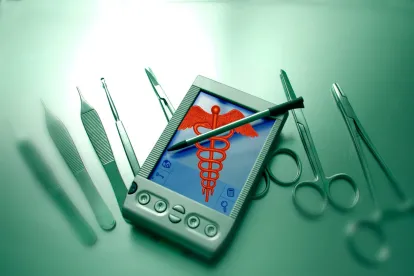The US Food and Drug Administration’s new requirements for sponsors to follow Good Clinical Practices (GCPs) for ex-US device clinical trials will affect device development strategies, including where to conduct such trials. While FDA will not regulate ex-US clinical investigations, if trial sponsors intend to use data from these trials for US approvals/notices, sponsors will need to demonstrate GCP compliance under US or comparable foreign standards.
The US Food and Drug Administration (FDA or Agency) published a final rule on FDA’s standards for accepting data from clinical investigations for medical devices on February 21.[1] Under the new rule, FDA is requiring sponsors and applicants to affirm that clinical investigations outside the United States were conducted in accordance with Good Clinical Practices (GCPs) when the data are submitted for medical device applications. The final rule also amends criteria for investigations conducted within the United States to require applicants and sponsors to state that the investigation complies with FDA regulations for human subject protection, institutional review boards, and investigational device exemptions (IDEs).[2] If an investigation is not conducted in accordance with those regulations, a brief statement of the reason for the noncompliance is required.
FDA also published a guidance document, Acceptance of Clinical Data to Support Medical Device Applications and Submissions Frequently Asked Questions (Guidance), to clarify requirements outlined in the final rule.[3]
The effective date for the rule is February 21, 2019, one year after its publication. The regulations will not be applied to clinical investigations outside the United States that begin prior to the effective date, meaning studies that enroll their first subjects before February 21, 2019. A subject is considered enrolled when the subject or subject’s authorized representative agrees to participate in the study by signing the informed consent form. Foreign investigations that enroll their first subjects prior to the rule’s effective date will be subject to the old requirements in 21 CFR § 814.15 regulating premarket approval (PMA) applications. For these investigations, FDA will accept the data if the data are valid and the investigators have conducted the studies in conformance with the Declaration of Helsinki or the laws and regulations of the country in which the research is conducted.[4]
Summary of the Final Rule
The rule applies to data obtained from clinical investigations conducted outside the United States, inside the United States, or both outside and inside the United States that are intended to support an investigational device exemption (IDE) application, a premarket notification (510(k)) submission, a request for De Novo classification, a PMA application, a product development protocol (PDP) application, or a humanitarian device exemption (HDE).
Clinical Investigations Outside the United States
The final rule establishes 21 CFR § 812.28, which identifies criteria for FDA acceptance of data from clinical investigations conducted outside the United States. The criteria require the investigations to be conducted in accordance with GCPs, replacing prior PMA regulations and creating new regulations for IDE applications and other device marketing applications that previously did not address acceptance of data from clinical studies conducted outside the United States.
1. Compliance with GCPs
FDA states that it does not intend to regulate clinical investigations conducted outside the United States and the rule does not identify a specific GCP standard for sponsors and applicants to follow.[5] Instead, the rule defines a GCP as “a standard for design, conduct, performance, monitoring, auditing, recording, analysis, and reporting of clinical investigations in a way that provides assurance that the data and results are credible and accurate and that the rights, safety, and well-being of subjects are protected. GCP includes review and approval . . . by an independent ethics committee (IEC) before initiating an investigation, continuing review of an ongoing investigation by an IEC, and obtaining and documenting the freely given informed consent of the subject . . . before initiating an investigation.”[6]
This definition allows sponsors flexibility to choose an appropriate standard to use that will produce data to support an application or submission to FDA that is consistent with the local laws and regulations of the foreign country where the research is being conducted. If needed, the rule allows sponsors and applicants to explain why a GCP was not followed and to describe the steps taken to ensure integrity of the data and protection of the human subjects.[7] In addition, the rule outlines a waiver provision that allows sponsors and applicants to request a waiver from the criteria if a country’s clinical investigation requirements prevent a sponsor from complying with GCPs.[8]
2. In Vitro Diagnostic Devices Using De-identified Specimens
The rule is not intended to override previous guidance on informed consent for in vitro diagnostic (IVD) devices using leftover de-identified specimens.[9] FDA states that it intends to continue exercising enforcement discretion for not obtaining informed consent under circumstances described in this guidance, and the Agency will not object if sponsors and applicants follow this guidance for similar IVD investigations conducted outside the United States, provided there is no other conflict with local laws and regulations.[10]
3. Supporting Information
A sponsor or an applicant submitting data from outside the United States is now required to include a description of the actions taken to ensure the research conducted conformed to GCPs. The supporting information must include the information outlined in Section 812.28(b). The level of information will vary based on the level of risk of the investigation, with significant risk device investigations requiring more supporting information, as described in FDA’s accompanying Guidance.[11]
Notably, FDA states that it may need to review documents such as medical records to verify data, whether through an onsite investigation or a request for documents. Therefore, FDA recommends including a statement in the informed consent documents that international regulatory authorities may need to have access to a subject’s medical records, which FDA requires to be retained for at least two years after the Agency has issued a decision.[12]
Finally, as FDA states in the Guidance, while the supporting information required by the new rule addresses acceptance of clinical data in terms of quality and integrity, other factors including the applicability of the investigations to the US population and medical practice should also be considered.[13]
Multicenter Clinical Investigations Conducted Inside and Outside the United States
The preamble notes that for multicenter investigations with sites both inside and outside the United States, each site is required to comply with the local requirements. Thus, clinical investigations conducted in the United States would be subject to 21 CFR §§ 50, 56, and 812 and investigations conducted outside the United States would be required to comply with 21 CFR § 812.28. The sponsor or applicant may provide a statement addressing compliance with FDA regulations and a statement regarding conformance of GCPs along with the supporting information when necessary.[14]
Key Takeaways
- Medical device companies will now need to implement new standard operating procedures and systems including audit processes to ensure GCP compliance for ex-US clinical trials.
- Additional education of contract research organizations (CROs) and ex-US clinical trial sites around GCP compliance will be necessary.
- Clinical trial agreements will need to be modified to require representations concerning GCP compliance.
- Additional costs of GCP compliance may affect strategic decisions about where to conduct future clinical trials (within versus outside the United States).
[1] US Food & Drug Admin., Human Subject Protection; Acceptance of Data from Clinical Investigations for Medical Devices, 83 Fed. Reg. 7366 (Feb. 21, 2018) (hereinafter Medical Device Rule).
[2] See 21 C.F.R. §§ 50, 56, 812.
[3] US Food & Drug Admin., Acceptance of Clinical Data to Support Medical Device Applications and Submissions Frequently Asked Questions, Guidance for Industry and Food and Drug Administration Staff, (Feb. 21, 2018).
[4] Medical Device Rule at 7368.
[5] Medical Device Rule at 7374.
[6] 21 C.F.R. § 812.28(a)(1).
[7] 21 C.F.R. § 812.27(b)(4)(ii).
[8] 21 C.F.R. § 812.28(c).
[9] US Food & Drug Admin., Informed Consent for In Vitro Diagnostic Device Studies Using Leftover Human Specimens That Are Not Individually Identifiable (Apr. 25, 2006).
[10] Medical Device Rule at 7372.
[11] See Guidance at 7-15.
[12] Id. at 10.
[13] Id. at 2.
[14] Medical Device Rule at 7370.





 />i
/>i

